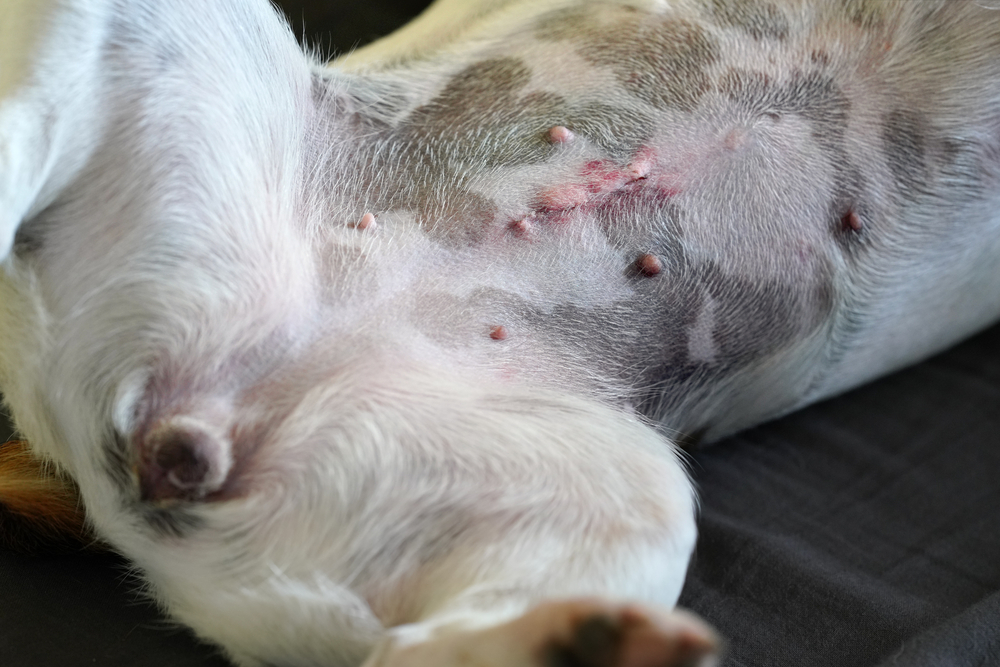
Sub title
Read Time: 4 minutes
Unless you’re a licensed animal breeder, it’s important to make sure that your pets are spayed or neutered. This is in part so that you don’t contribute to the already too-large population of animals in shelters but also for health and behavior reasons. For most pet owners, veterinarians recommend spaying and neutering due to the many benefits that come from the procedure.
What Is the Difference Between Spaying and Neutering?
Spaying and neutering are commonly mixed up. They both prevent a pet from having offspring, but each procedure removes a different type of reproductive organ, depending on whether the pet is male or female.
What Is Spaying?

Spaying is the process of removing a female animal’s reproductive organs, including the ovaries and the uterus.
What Is Neutering
Neutering is the process of removing a male animal’s testicles.
What Are the Benefits of Spaying or Neutering a Pet?
While the most obvious benefit of spaying or neutering your pet cat or dog is that they won’t be able to have kittens or puppies, there are other benefits as well.
#1
Reduced Risk of Cancer
There are certain cancers that can occur in the reproductive organs of animals if they aren’t spayed or neutered. These include testicular cancer in male animals and, in female animals, ovarian and uterine cancers. The organs in question are removed during the spaying or neutering process and therefore cannot develop cancer.
#2
Improved Behavior

Some pets may exhibit undesirable behaviors when they haven’t been spayed or neutered. Male pets in particular that haven’t been neutered may be more aggressive and may bite. Spaying and neutering can help to improve these behaviors.
#3
Lower Risk of Injuries
Pets that have access to the outdoors that haven’t been spayed or neutered may wander far from the home. This could result in injuries caused by a car accident or fights with other animals. Pets that have been spayed or neutered won’t feel such an urge to wander and therefore will stay closer to home.
#4
Healthier, Longer-Lived Pets

Because of the reduced risk of cancer and injuries, pets that have been spayed or neutered are often able to live longer, healthier lives than those that have not. If your pets aren’t wandering as much, then they’re also less likely to contract other diseases that could spread from animal to animal.
#5
No Marking or Spraying
Marking or spraying is the practice of marking territory or pets introducing themselves to other animals. Outside, this may be perfectly fine. It can be a method of greeting other animals. However, when it’s done inside the house to mark territory, then it can be problematic for pet owners. Spaying or neutering can help to reduce or even eliminate spraying or marking, although it’s not guaranteed.
#6
No Heat Cycles
When a female animal is in heat, then other animals may be attracted to her. Spaying your pet can help to reduce this unwanted attention and stop male animals from bothering her or impregnating her.
#7
Helps Reduce Animal Overpopulation

There are millions of animals living in shelters across the United States. In some cases, shelters have no choice but to euthanize animals that are sick, older, or otherwise less likely to be adopted in order to make room for more. Some areas have a problem with stray animals. By spaying or neutering your pets, you’re ensuring that you and your pets are not contributing to the overpopulation problem.
Are There Risks Involved with Spaying or Neutering?
Both spaying and neutering are very common procedures. In fact, they’re among the most common procedures that veterinarians perform. This means that there’s a very low risk of anything going wrong. However, both are still surgeries, which are never risk-free. Complications are unlikely, though.
When Should You Spay or Neuter Your Pet?
It’s best to spay or neuter your pet at a young age. Which age is recommended depends on the type of pet you have. In cats, it’s best to neuter or spay before the age of five months. In dogs, between six and nine months is typically recommended. However, you should speak with your veterinarian so you can schedule the appointment for the best possible time.

Concerned about your pet’s health?
Contact us
If your pet is exhibiting concerning symptoms or experiencing a medical emergency, please call our clinic at (407) 352-2579. We’ll help you through it.




